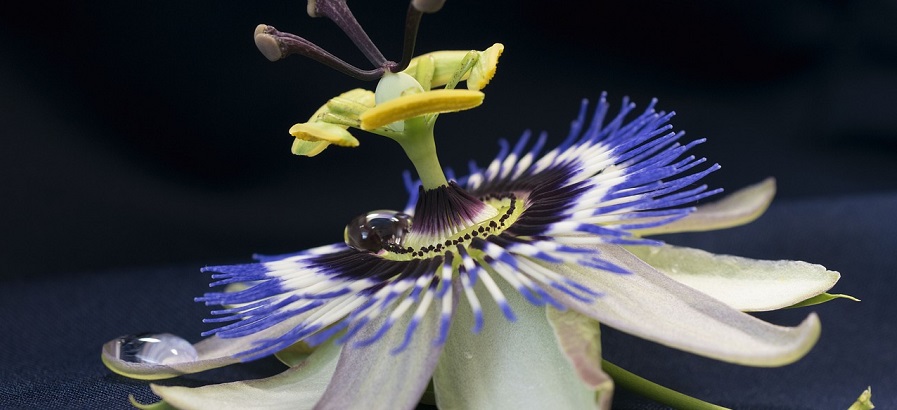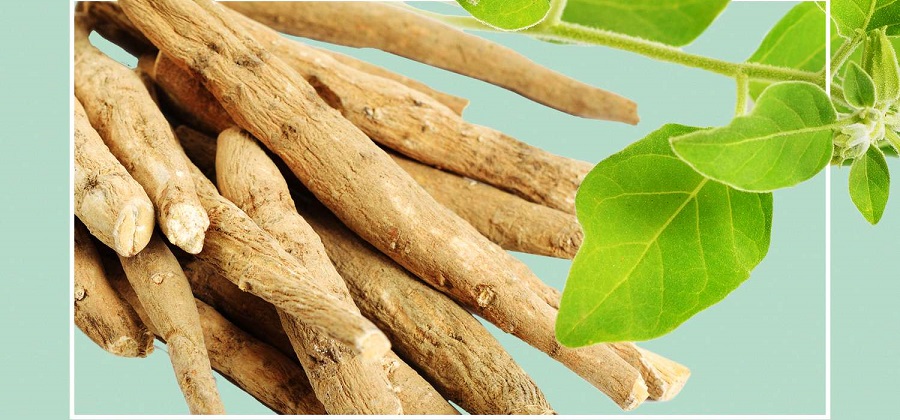Passionflower, also known as Passiflora, is a flowering vine that belongs to the Passifloraceae family. It is native to tropical and subtropical regions of the Americas, and it is widely cultivated for its beautiful, intricate flowers. The plant is known for its medicinal properties and has been used for centuries in traditional medicine to treat a variety of conditions, including anxiety, insomnia, and pain.
Passionflower contains a variety of compounds that are thought to contribute to its medicinal properties, including alkaloids, flavonoids, and phytosterols. Studies have suggested that passionflower may have a calming effect on the central nervous system, which may help to reduce anxiety and promote relaxation. It is also believed to have pain-relieving and anti-inflammatory properties.
Passionflower is typically consumed in the form of a tea or as a dietary supplement. It can also be found in tinctures, capsules, and extracts. Due to the lack of well-conducted research, it is not recommended to consume passionflower during pregnancy or breastfeeding. Additionally, it is not recommended to consume Passionflower with sedative medications, it may cause excessive drowsiness.
There are many species of passionflower, each with their own unique characteristics and uses. Some popular species include Passiflora incarnata, Passiflora caerulea, and Passiflora edulis. Passionflower is a hardy, fast-growing vine and can be grown in a home garden with proper care and attention.
Passionflower has a delicate, sweet flavor and can be used in a variety of culinary applications, such as jams, jellies, and syrups. The passionflower leaves are also edible and can be used in teas or as a garnish.
The cultural significance of the passionflower varies depending on the region in which it is found. In some cultures, it is considered a symbol of faith, while in others it is believed to have spiritual or mystical properties.
In conclusion, passionflower is a beautiful and versatile plant with a rich history of use in traditional medicine. While more research is needed to fully understand its medicinal properties, it is considered to have a calming effect on the central nervous system, pain-relieving and anti-inflammatory properties. It's important to keep in mind that it may interact with certain medications and should be used with caution.
What is the scientific name for passionflower?
The scientific name for passionflower is Passiflora. It is a genus of about 550 species of flowering plants, the type genus of the family Passifloraceae. They are mostly vines and produce unusual and beautiful flowers with distinctive and intricate structures.
What is the history of the passionflower and where did it originate?
The history of passionflower dates back to the 16th century, when Spanish explorers first encountered the plant in the tropical regions of the Americas. The intricate structure of the passionflower's blooms caught the attention of the explorers, and they named it "la flor de la passion" (the flower of passion) in reference to the crucifixion of Jesus Christ, believing that the various parts of the flower symbolized different elements of the Passion story.
Passionflower is native to the tropical and subtropical regions of the Americas, including South America, Central America, Mexico, and the southern United States. The majority of the species are found in South America, with the greatest diversity in Brazil.
The indigenous people of the Americas have used passionflower for centuries in traditional medicine to treat a variety of ailments, including anxiety, insomnia, pain, and digestive issues. They used the leaves, stem and root of the plant to make teas, decoctions, and poultices.
In the 19th century, passionflower began to be widely used in Europe as a natural remedy for anxiety, insomnia, and other nervous disorders. In the 20th century, scientific research began to be conducted on the medicinal properties of the plant, and it continues to be studied today.
In summary, passionflower is native to the tropical and subtropical regions of the Americas, it was first discovered by the Spanish explorers in the 16th century, and it has been used for centuries in traditional medicine by the indigenous people of the Americas to treat a variety of ailments. The plant's intricate blooms caught the attention of the explorers and was named "La flor de la passion" (The flower of passion) based on the crucifixion of Jesus Christ.
What are the traditional uses of passionflower in medicine?
Passionflower has been used traditionally in medicine for a variety of ailments. Some of the most commonly reported traditional uses of passionflower include:
-
Anxiety: Passionflower has been traditionally used to reduce anxiety and promote relaxation. It is believed to have a calming effect on the central nervous system, which may help to reduce feelings of anxiety and nervousness.
-
Insomnia: Passionflower has been traditionally used as a natural remedy for insomnia. It is thought to promote relaxation and help to improve sleep quality.
-
Pain: Passionflower has been traditionally used to relieve pain, particularly pain associated with menstrual cramps and headaches.
-
Digestive issues: Passionflower has been traditionally used to treat digestive issues such as stomach cramps and diarrhea.
-
Addictions: Passionflower has been traditionally used to help alleviate symptoms of addiction, such as withdrawal and cravings.
-
Attention Deficit Hyperactivity Disorder (ADHD) : Passionflower has been traditionally used to help alleviate symptoms of ADHD
It's important to note that traditional uses of the plant have not been scientifically proven and more research is needed to determine the effectiveness of passionflower for these conditions. Additionally, Passionflower may interact with certain medications, so it's important to consult a healthcare professional before using it as a treatment.
What are the benefits of consuming passionflower?
Passionflower is believed to have a variety of potential health benefits when consumed, although more research is needed to confirm the effectiveness of passionflower for these conditions. Some of the potential benefits of consuming passionflower include:
-
Reducing Anxiety: Passionflower has been shown to have a calming effect on the central nervous system, which may help to reduce feelings of anxiety and nervousness.
-
Improving Sleep: Passionflower may improve sleep quality and help to alleviate insomnia.
-
Relieving Pain: Passionflower may have pain-relieving and anti-inflammatory properties, which may help to alleviate pain associated with menstrual cramps and headaches.
-
Alleviating Digestive Issues: Passionflower may help to alleviate digestive issues such as stomach cramps and diarrhea.
-
Helping with Addictions: Passionflower may help to alleviate symptoms of addiction, such as withdrawal and cravings.
-
Improving Attention Deficit Hyperactivity Disorder (ADHD) symptoms: Passionflower may help to alleviate symptoms of ADHD.
It's important to note that the evidence for these potential benefits is largely based on preliminary studies and more research is needed to confirm their effectiveness. Additionally, passionflower may interact with certain medications, so it's important to consult a healthcare professional before using it as a treatment.
What are the potential side effects of consuming passionflower?
Passionflower is generally considered safe when consumed in moderate amounts, but it can cause some side effects. Some of the potential side effects of consuming passionflower include:
-
Drowsiness: Passionflower may cause drowsiness, which may be beneficial for people with insomnia, but it can be dangerous for people who are operating heavy machinery or driving.
-
Confusion: Passionflower may cause confusion or disorientation, particularly in older adults.
-
Nausea: Passionflower may cause nausea, particularly when consumed in large amounts.
-
Allergic reactions: Passionflower may cause allergic reactions in some people, such as skin rash, hives, or itching.
-
Drug interactions: Passionflower may interact with certain medications, such as sedatives and antidepressants, which may increase the risk of drowsiness and other side effects.
It's important to note that these side effects may not be experienced by everyone and they are usually mild. Additionally, passionflower may have an interaction with certain medications, so it's important to consult a healthcare professional before using it as a treatment. Also, due to the lack of well-conducted research, it is not recommended to consume passionflower during pregnancy or breastfeeding.
How is passionflower typically consumed?
Passionflower is typically consumed in the following ways:
-
Tea: Passionflower tea is the most common way of consuming the plant. It is made by steeping dried or fresh passionflower leaves and flowers in hot water.
-
Capsules: Passionflower supplements can also be found in capsules, which can be taken as directed on the label.
-
Tinctures: Passionflower tinctures are made by extracting the active compounds of the plant in alcohol. It can be added to water, juice or other beverages.
-
Extracts: Passionflower extracts can be found in various forms such as liquid, powder, and tablets. They are made by concentrating the active compounds of the plant.
-
Topical: Passionflower can also be applied topically in the form of creams and lotions.
It's important to note that, while passionflower is considered safe when consumed in moderate amounts, it may interact with certain medications and should be used with caution. Additionally, due to the lack of well-conducted research, it is not recommended to consume passionflower during pregnancy or breastfeeding. It's always best to consult a healthcare professional before consuming passionflower as a treatment or in case of any doubts.
What are the different varieties of passionflower?
There are many different varieties of passionflower, with varying colors, sizes, and growth habits. Some popular species include:
-
Passiflora incarnata: Also known as the maypop, it is native to the southeastern United States. It has large, white, pink, or purple flowers with a distinctive ring of purple filaments.
-
Passiflora caerulea: Also known as the blue passionflower, it is native to South America. It has large, blue-purple flowers with a white and purple corona.
-
Passiflora edulis: Also known as the passion fruit, it is native to Brazil. It has small, white or purple flowers and produces edible fruit that is popular in tropical cuisine.
-
Passiflora laurifolia: Also known as the water lemon, it is native to Central and South America. It has large, pink or white flowers and produces edible fruit that is similar in taste to a lemon.
-
Passiflora alata: Also known as the winged-stem passionflower, it is native to Central and South America. It has large, white or purple flowers with a red or purple crown.
-
Passiflora mollissima: Also known as the banana passionfruit, it is native to Central and South America. It has small, yellow flowers and produces edible fruit that is similar in taste to a banana.
-
Passiflora quadrangularis: Also known as the giant granadilla, it is native to Central and South America. It has large, white or purple flowers and produces edible fruit that is similar in taste to a pineapple.
These are just a few examples of the many different varieties of passionflower that are available. Each species has its own unique characteristics and uses, and new species are being discovered and studied regularly.


